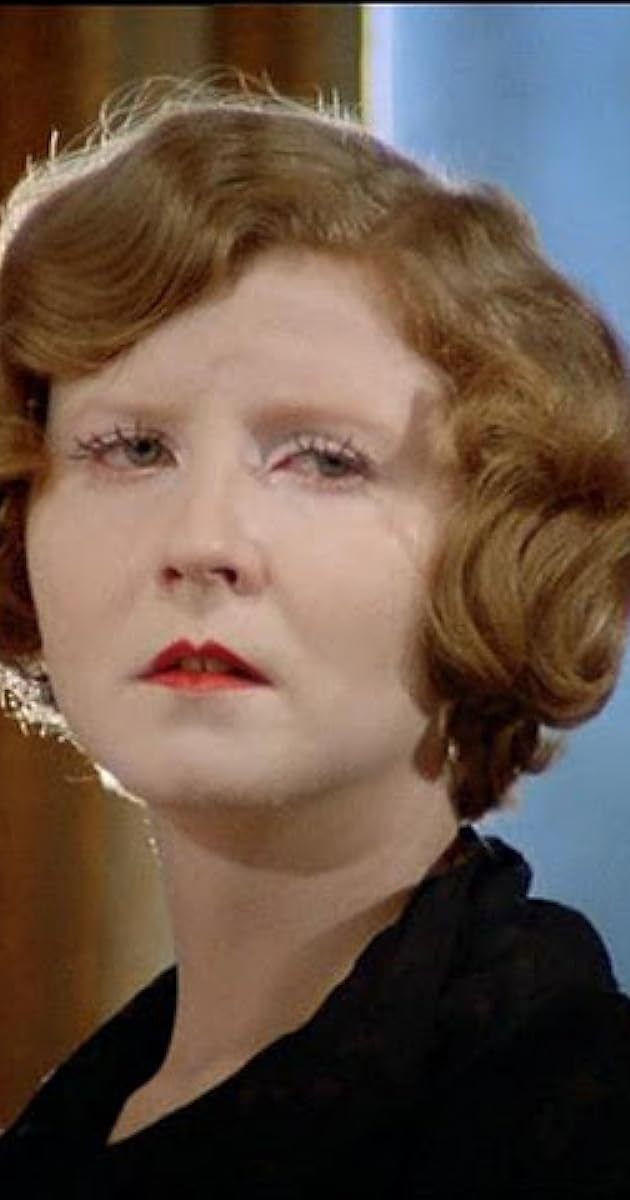#irm hermann
Text
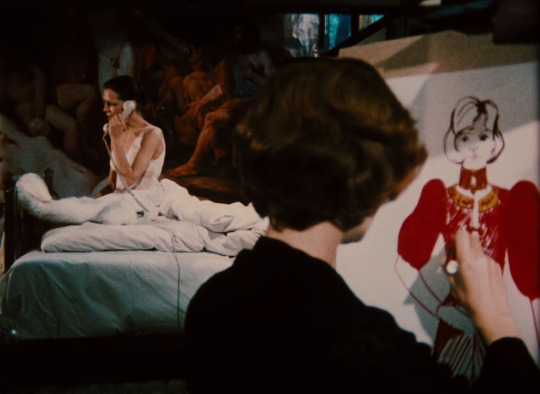

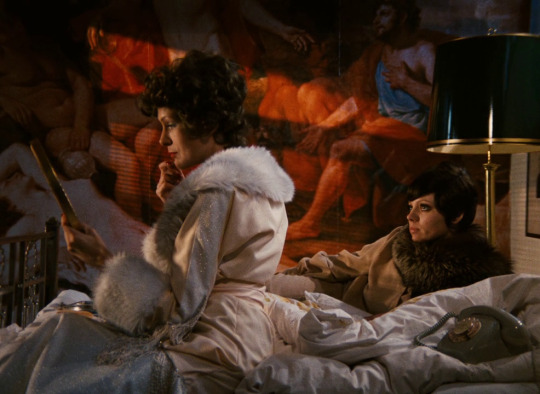

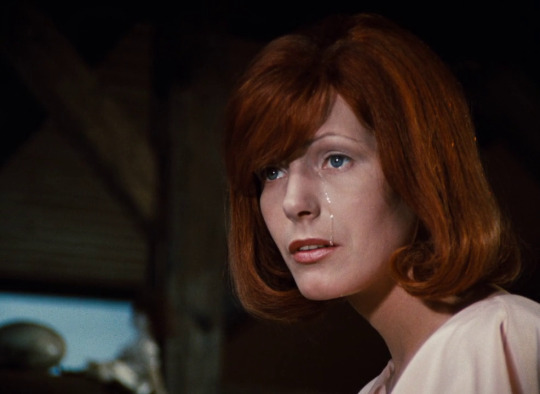
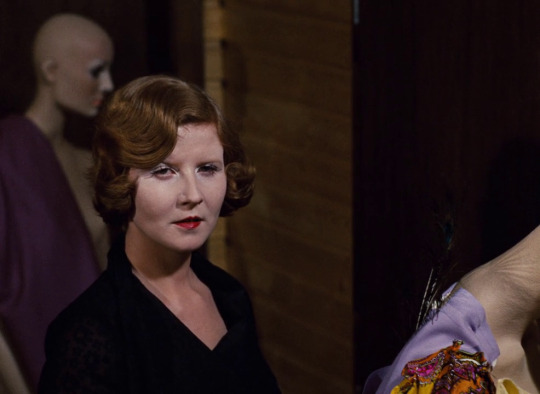
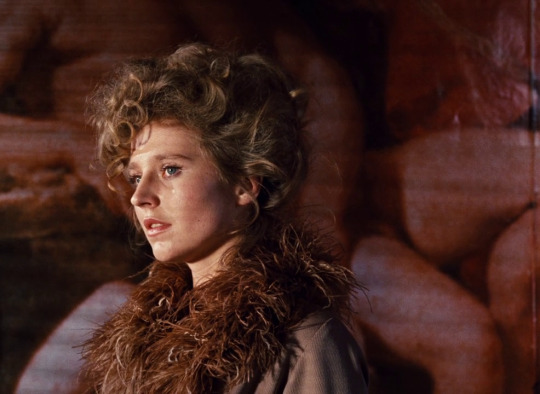
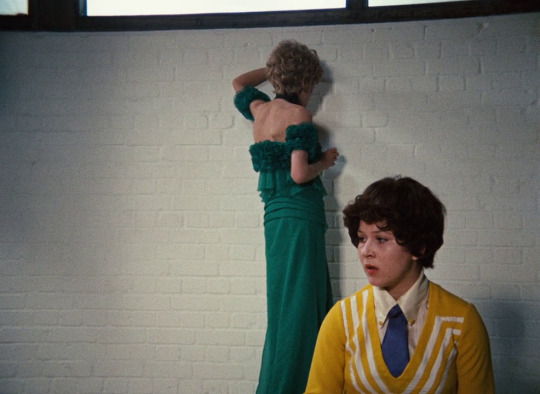

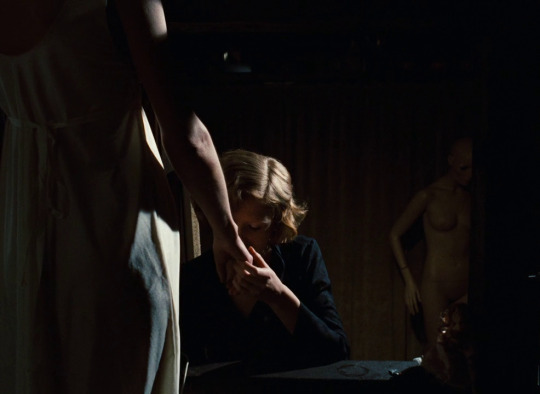
The Bitter Tears of Petra von Kant (1972) | dir. Rainer Werner Fassbinder
#the bitter tears of petra von kant#die bitteren tränen der petra von kant#rainer werner fassbinder#margit carstensen#irm hermann#hanna schygulla#eva mattes#gisela fackeldey#films#movies#cinematography#screencaps
119 notes
·
View notes
Text

Rainer Werner Fassbinder - The Merchant of Four Seasons (1971)
#film#rainer werner fassbinder#the merchant of four seasons#händler der vier jahreszeiten#irm hermann#1971
12 notes
·
View notes
Photo



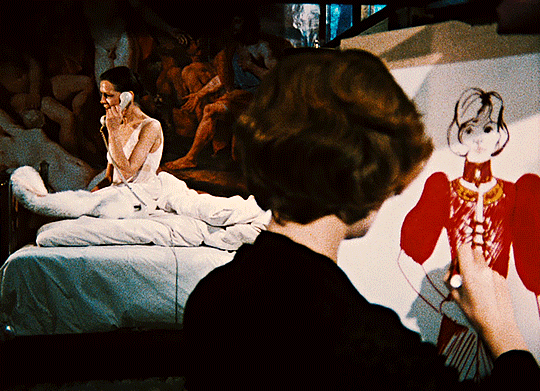

THE BITTER TEARS OF PETRA VON KANT (1972) dir. Rainer Werner Fassbinder
51 notes
·
View notes
Photo

#a woman in berlin#nina hoss#movie poster#movie posters#film#films#wwii#roman gribkov#irm hermann#august diehl#poster
27 notes
·
View notes
Text
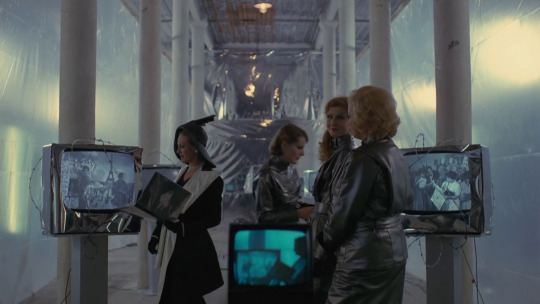
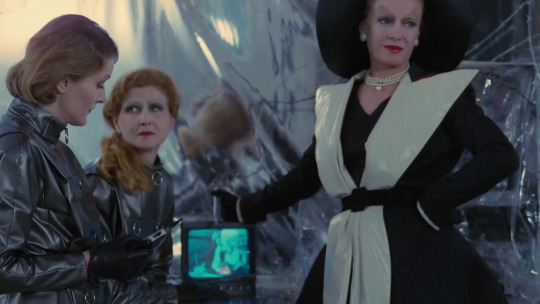

3 notes
·
View notes
Text
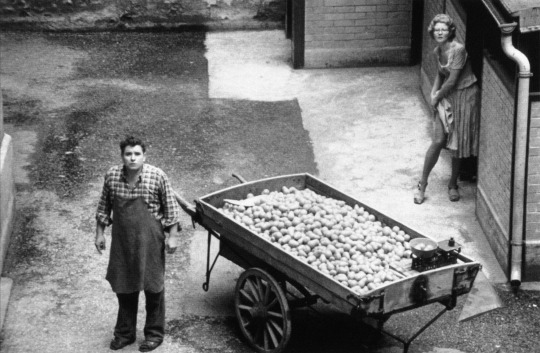
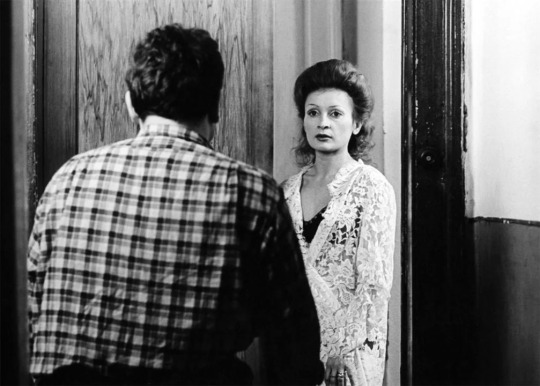
#händler der vier jahreszeiten#the merchant of four seasons#rainer werner fassbinder#1972#irm hermann#ingrid caven#hans hirschmüller
2 notes
·
View notes
Photo
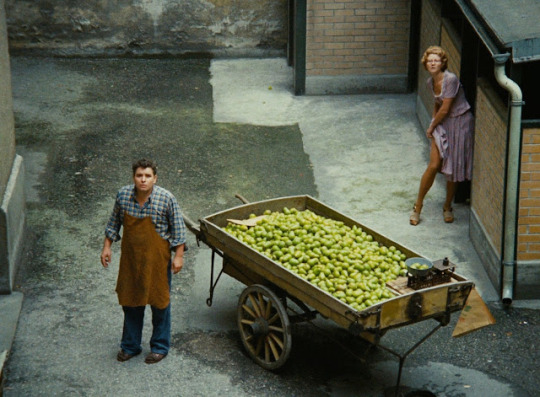
Hans Hirschmüller and Irm Hermann in The Merchant of Four Seasons (Rainer Werner Fassbinder, 1972)
Cast: Hans Hirschmüller, Irm Hermann, Hanna Schygulla, Klaus Löwitsch, Karl Scheydt, Andrea Schober, Gusti Kreissl, Ingrid Caven, Kurt Raab, Heidi Simon.
Screenplay: Rainer Werner Fassbinder. Cinematography: Dietrich Lohmann. Production design: Kurt Raab
Schlubby little (much is made of how much shorter he is than his wife) Hans Epp (Hans Hirschmüller) joined the Foreign Legion after washing out of the Munich police force for receiving a blowjob from a prostitute he had arrested, and now sells fruit from a pushcart he trundles through the courtyards of apartment houses. He is the object of scorn from his family because he never found a white-collar job, unlike his upwardly mobile brother-in-law and his intellectual sister Anna (Hanna Schygulla). His wife, Irmgard (Irm Hermann), assists him in the fruit-selling business, working from a street stall, but it's clear that their marriage is troubled -- she spies on him at work, counting the minutes that he takes to deliver a bagful of pears to the woman he once proposed to. (She turned him down.) Even his mother (Gusti Kreissl) doesn't love him: When he returns from the Foreign Legion and tells her that the friend who enlisted with him was killed, she retorts, "The good die young, but you come back." When he suffers a heart attack, Irmgard cheats on him while he's in the hospital, and then later lets him hire the man she slept with to take over the heavy-lifting part of the job. Despite all that's stacked against him, Hans manages to make a go as a merchant, but just as his family begins to praise him instead of dumping on him, he sinks into a deep depression and winds up drinking himself to death. If this all sounds terribly heavy-handed, it's lifted out of the suds in precisely the way Douglas Sirk made his films rise about their soap-operatic plots with sharp-eyed direction, flashes of wit, and sly social comment. The comparison to Sirk is an obvious one: Rainer Werner Fassbinder's breakthrough film was inspired by his study of the Hollywood master, whom he deliberately set out to imitate and, I think, managed to excel, if only because he wasn't handicapped by the money-making concerns and censorship of American film. There are some delicious performances, not only from Hirschmüller as the sad-sack Hans and Hermann as his sly helpmeet, but also from Schygulla as the somewhat sympathetic Anna. And the film ends with one of the most chilling exchanges in any Fassbinder film, as Irmgard and Harry (Klaus Löwitsch), Hans's old Legionnaire buddy who has gone to work for him, drive away from the funeral and she proposes a business-like marriage to him. His terse reply, "Okay," perfectly sums up the emotionless, mercantile tone that pervades the film.
5 notes
·
View notes
Photo

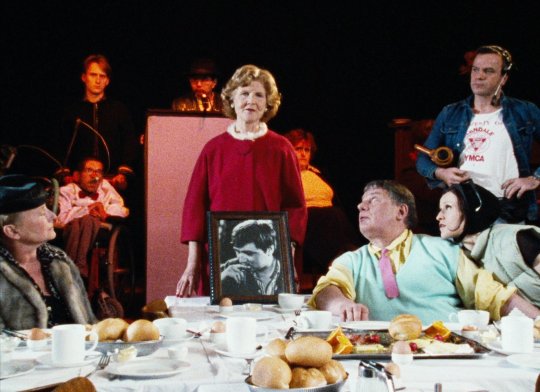
The 120 Days of Bottrop (Die 120 Tage von Bottrop) (1997) Christoph Schlingensief
June 3rd 2023
#the 120 days of bottrop#die 120 tage von bottrop#1997#christoph schlingensief#margit carstensen#irm hermann#volker spengler#udo kier#helmut berger#mario garzaner#martin wuttke
1 note
·
View note
Text
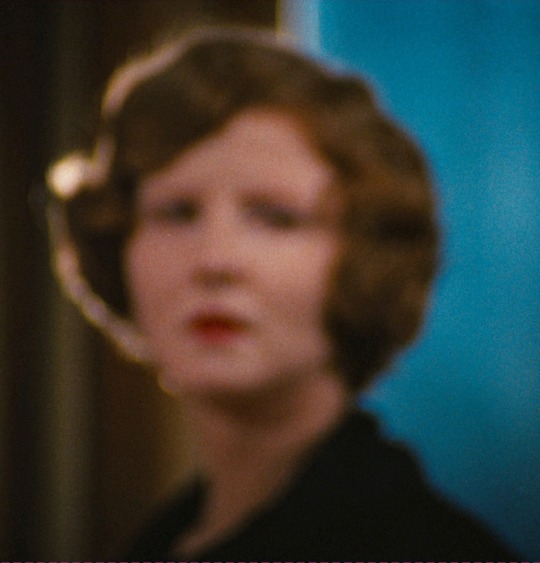
https://youmustrememberthis.bandcamp.com/album/fade-into-you
1 note
·
View note
Text
FEAR OF FEAR/ ANGST VON DER ANGST (Rainer Werner Fassbinder, West Germany, 1975)

View On WordPress
#Adrian Hoven#Armin Meier#Fear of Fear#Irm Hermann#Kurt Raab#made-for-tv movie#Peter Lorre#Rainer Werner Fassbinder#The &039;Woman&039;s Film#woman&039;s film
0 notes
Text
Gesang der toten Dinge gives Ivo a chance to charm/be charmed by an older woman, one of the best parts of his character.
Who could resist Irm Hermann?? Other than Franz of course? It’s a smaller role but she leans much further into the witchiness in Wofür es sich zu Leben lohnt. You get Hanna Schygulla in that, too! Worth it even if you’re not big on Konstanz.
These episodes without subtitles kill me. Is it Mosacke? Moosacke? Moosackel?
1 note
·
View note
Text
Seven Women, Seven Sins (1986)
Seven Women, Seven Sins by #ChantalAkerman, #BetteGordon, #UlrikeOttinger and others, "The ratio of good to bad is certainly better than the 1962 collection made on the same theme",
CHANTAL AKERMAN, MAXI COHEN, VALIE EXPORT, LAURENCE GAVRON, BETTE GORDON, ULRIKE OTTINGER, HELKE SANDER
Bil’s rating (out of 5): BBB
France/Austria/Belgium/West Germany/USA, 1986. Zweites Deutsches Fernsehen. Screenplay by Chantal Akerman, Maxi Cohen, Valie Export, Laurence Gavron, Bette Gordon, Ulrike Ottinger, Helke Sander. Cinematography by Ulrike Ottinger. Produced by Maxi Cohen, Maya…

View On WordPress
#Alan Colmes#Alfred Neugebauer#Andrew Casala#Austria#Belgium#Bernhard Jahn-Chor#Bette Gordon#Bev Stroganov#Brigitte Kramer#Chantal Akerman#Delphine Seyrig#Else Nabu#Eric T. Jones#Evelyne Didi#France#Gabi Herz#Gabriele Heidecker#Ged Marlon#Helke Sander#Irm Hermann#Kate Valk#Laura Bang#Laurence Gavron#Leah Sperry#Lida Drummond#Louis Eppolito#Luis Guzmán#Manuela Gourary#Marshall Jacobowitz#Martin Nelson
0 notes
Photo

Maria-Empfängnis-Aktion, Hermann Nitsch, 1970, dir. by Ed and Irm Sommer
74 notes
·
View notes
Photo

Brigitte Mira. Irm Hermann. Ingrid Caven. Hanna Schygulla. Barbara Valentin. Rosel Zech. Barbara Sukowa. Christiane Maybach. In the 1970s turbulent New German Cinema visionary Rainer Werner Fassbinder worked with - and elicited career-best performances from - the crème de la crème of German actresses. Even in that illustrious company, Margit Carstensen (29 February 1940 – 1 June 2023) - who has died aged 83 - was exceptional. Fassbinder’s camera devoured the planes and hollows of Carstensen’s remarkable face, and she’s particularly spellbinding in The Bitter Tears of Petra Von Kant (1972), Martha (1974) and especially Fear of Fear (1975), one of the definitive “women-having-a-breakdown” movies (see also: Monica Vitti in Antonioni’s Red Desert (1964)).
#margit carstensen#rainer werner fassbinder#rw fassbinder#r w fassbinder#new german cinema#german actress#european art cinema#lobotomy room#fear of fear
15 notes
·
View notes
Text
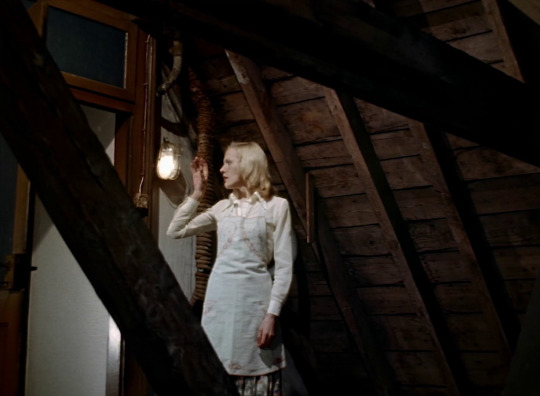
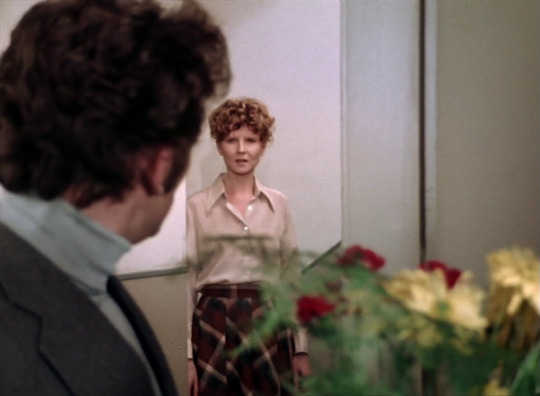
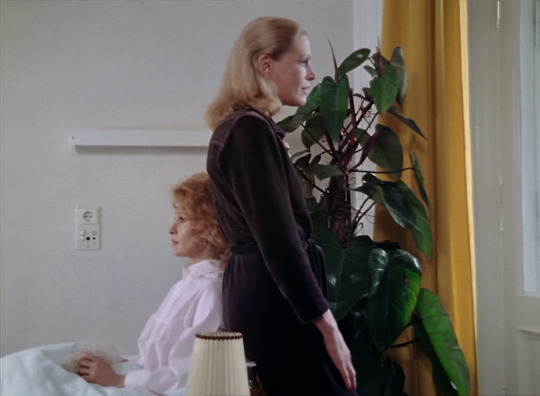

2 notes
·
View notes
